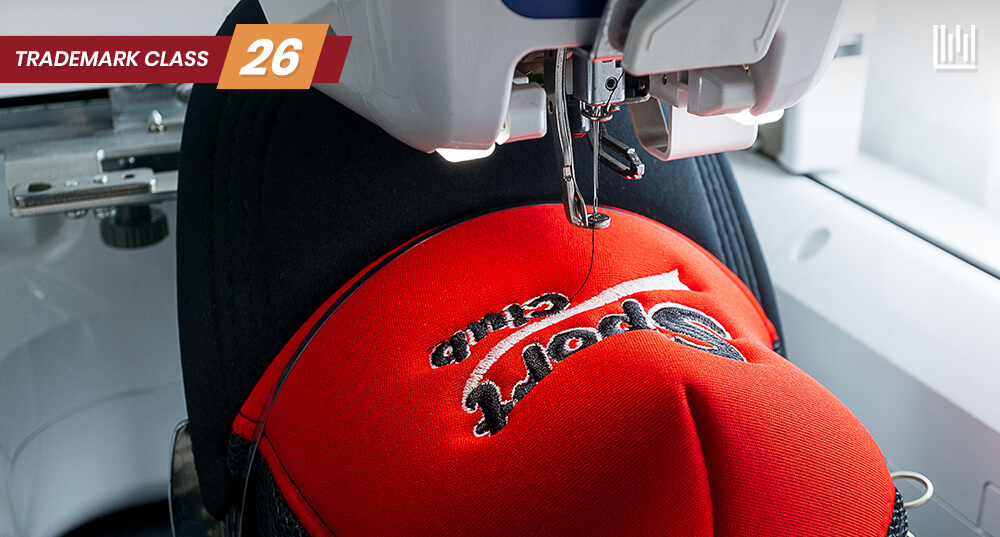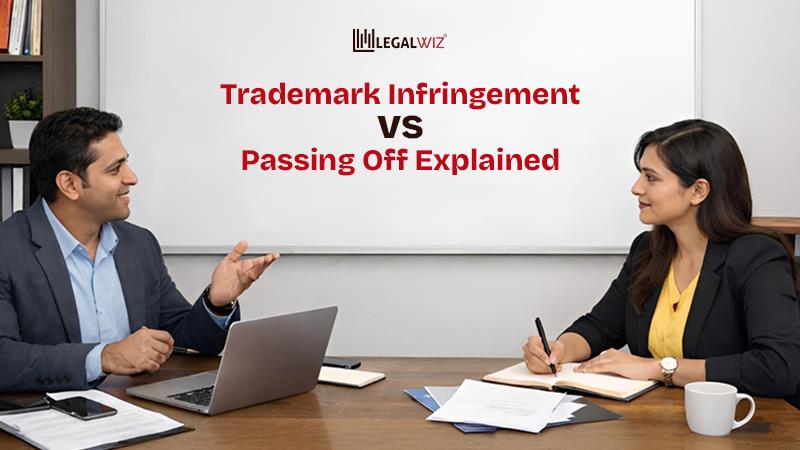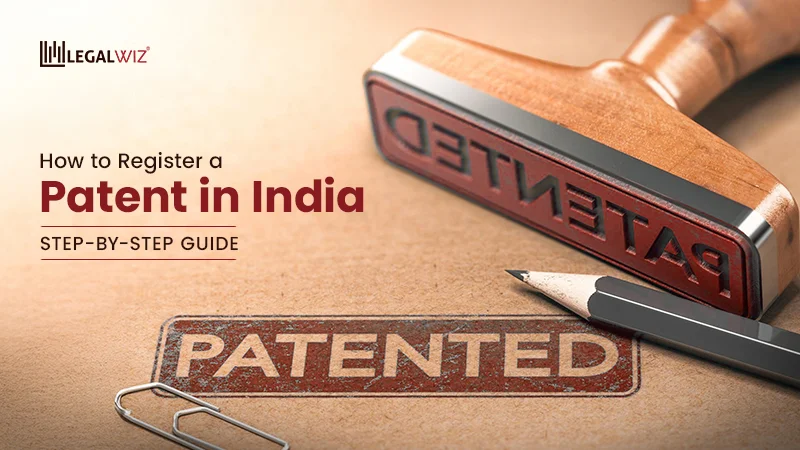Trademark Class 26 for Protecting Laces, Ribbons, Buttons & Decorative Accessories
If your business deals in lace, ribbons, buttons, artificial flowers, or other decorative textiles and accessories, you need to register your brand under Trademark Class 26. This class covers non-functional ornamental items primarily used in fashion, crafts, and decorative goods.
Whether you’re selling lace for garments, designing custom ribbons for packaging, or manufacturing buttons for tailoring, registering your brand under the correct class ensures legal protection for your products in a competitive fashion and accessories market.
Let’s explore what’s included in Trademark Class 26, what’s not, and how to file for protection under the correct classification through online trademark registration.
Understanding Trademark Classification in India
Trademarks in India are governed by the Trade Marks Act, 1999, which allows businesses to protect names, logos, product lines, and visual identities associated with specific goods or services.
India uses the internationally recognized Nice Classification system, which divides goods and services into 45 trademark classes—Classes 1 to 34 for goods and Classes 35 to 45 for services.
Trademark Class 26 applies specifically to decorative items such as lace, ribbons, buttons, artificial flowers, and other embellishments. These items are often used in the fashion, craft, and home decor industries.
What Products Can You Trademark Under Class 26?
Trademark Class 26 includes a wide variety of garment accessories and decorative items used in fashion design, tailoring, embroidery, and home sewing. These products are typically used to enhance the appearance, function, or finish of clothing and textiles.
Here’s a detailed list of what you can trademark under Class 26
- Buttons and fasteners – Plastic, metal, wooden, or fabric-covered buttons; press studs; snap closures; toggle fasteners.
- Zippers and sliders – Full zipper systems, decorative zipper heads, and sliders for clothing, bags, and upholstery.
- Lace and trimmings – Embroidered lace, crochet lace, and decorative textile borders used in fashion or home décor.
- Ribbons and braids – Satin ribbons, grosgrain, woven trims, and appliqué braids for crafting and apparel detailing.
- Hooks, eyes, and eyelets – Tailoring hardware used for closures on shirts, skirts, or ethnic wear.
- Sewing and embroidery accessories – Pin cushions, thimbles, tape measures, needle threaders, and pre-assembled sewing kits.
- Hair accessories – Barrettes, hair clips, hair pins, hair ties, and scrunchies designed for personal styling.
- Artificial flowers and ornaments – Textile or plastic embellishments used in dresses, uniforms, and costumes.
These products are commonly sold by tailoring suppliers, garment accessory manufacturers, embroidery brands, and craft retailers.
Explore the Complete List of Products Classified Under Trademark Class 26
Browse this simplified list to check whether your laces, ribbons, buttons, or decorative accessories are protected under Trademark Class 26.
Use the search function to quickly locate specific products and confirm their classification.
| Class | Term |
|---|
Looking for the right trademark class for your product? Check out our detailed article on choosing the appropriate class for trademark registration to identify the best fit for your product.
What Is Not Included in Trademark Class 26?
Although Trademark Class 26 includes a wide variety of dressmakers’ articles and sewing accessories, some related products belong to different classes depending on their purpose or composition.
Here are examples of what is not included in Class 26, along with correct classifications:
- Ready-made garments and apparel fall under the trademark class for clothing and footwear (Class 25), since Class 26 only covers accessories used in or with garments.
- Textile fabrics and cloth materials used for making garments are classified under the trademark class for textiles (Class 24), not garment accessories.
- Sewing machines and tailoring equipment belong to the trademark class for machinery (Class 7), as Class 26 covers manual accessories but not powered tools.
- Artificial jewelry and fashion accessories like necklaces or bracelets fall under the trademark class for jewellery and watches (Class 14), unless they are purely decorative garment elements.
- Raw threads, yarns, and sewing filaments used in garment production are part of the trademark class for yarns and threads (Class 23), not the accessory class.
Determining the exact trademark class for your product can be tricky, especially when items overlap in function. If you’re unsure where your goods fit, use our Trademark Class Search Tool to find the right match and avoid rejection or delays.
Intellectual Properties You Should Trademark Under Class 26
If you manufacture or sell dressmakers’ accessories, tailoring tools, or fashion trimmings, securing your intellectual property under Trademark Class 26 is key to standing out in the garment and textile accessory market.
Here’s what you should consider trademarking:
- Company Name – Protect your legal business name (e.g., “TrimCraft Accessories Pvt. Ltd.”) used in product packaging or branding.
- Brand Name – Register names like “Zippix,” “Buttonique,” or “LaceCraft” that identify your sewing or garment accessory lines.
- Product Series or Collection Names – Trademark names such as “Classic Couture Trims” or “Ornate Essentials” for specific collections.
- Logos and Icons – Trademark logos, symbols, or monograms stitched on packaging or labels.
- Slogans or Taglines – Register phrases like “Detail Defines Design” or “Accessorize with Precision” used in advertising or product marketing.
These protections help you build credibility in fashion, tailoring, and garment supply chains while preventing competitors from imitating your identity.
List of Popular Brands Registered Under Class 26
Many brands specializing in sewing accessories, garment trimmings, and fashion embellishments have secured their trademarks under Trademark Class 26 to protect their identity across retail, export, and tailoring supply chains.
Here are some popular examples:
- YKK – A globally recognized manufacturer of zippers and fastening systems widely used in apparel and bags.
- Madura Coats – Known for sewing and embroidery accessories such as buttons, zippers, and tailoring kits.
- Buttonwale – An Indian brand offering a vast range of buttons, hooks, eyelets, and embellishments.
- Prym – A German brand that supplies sewing tools, needles, thimbles, and garment fasteners.
- Lincraft – Offers decorative trimmings, braids, ribbons, and crafting accessories for fashion and DIY use.
- CraftVilla – Popular among home tailors and boutique brands for lace, applique, and dressmaking supplies.
- SewMate – Supplies high-quality sewing tools and accessories like pin cushions, threaders, and measuring tapes.
These businesses rely on Trademark Class 26 registration to maintain their distinct presence in fashion supply, tailoring accessories, and DIY craft markets.
Why Register Your Trademark Under Class 26?
In the world of fashion detailing, tailoring, and garment production, accessories like buttons, zippers, and trims play a vital role in design and branding. Registering your trademark under Class 26 ensures your accessory brand stands out and stays legally protected.
Key Benefits for Dressmaking & Sewing Accessory Brands
- Exclusive Ownership of Brand Elements
Secure your business name, product logo, and label designs from unauthorised use or imitation. - Prevent Duplication in Wholesale & E-commerce Channels
Protect your brand from lookalikes across marketplaces and B2B distributors. - Boost Brand Recognition in Niche Segments
Stand out in a specialised industry where fine details like trims and fasteners influence buyer decisions. - Protect Collection or Line Extensions
Trademark protection allows you to launch new accessory ranges under the same brand identity. - Strengthen IP Value for B2B Deals or Licensing
A registered brand enhances credibility and valuation during export, OEM manufacturing, or private labeling.
If you’ve read this far, you likely know if your product falls under Class 26. If it does, now’s the perfect time to take the next step—apply for trademark registration today with expert guidance from LegalWiz.
Still evaluating your next steps? These resources will help you make an informed decision:
- When and why you should trademark a name
- What can be registered as a trademark
- Different types of trademarks in India
- Trademark registration fees and costs in India
- Documents Required for Trademark Registration in India
10,000+ Brands Trust LegalWiz.in for Trademark Protection
From zipper and button manufacturers to lace exporters, tailoring kit suppliers, and craft accessory brands, LegalWiz.in has helped thousands of businesses across India protect their identities under the correct trademark class.
With deep expertise in Class 26 filings, we guide businesses through accurate documentation, brand-specific classification, and complete legal compliance.
Our fully online process ensures your sewing accessory or fashion trimming brand is protected with minimal effort and maximum support.
Why Choose LegalWiz.in for Your Trademark Registration?
Whether you supply dressmakers’ accessories, run a craft retail brand, or manufacture fasteners and trims for the fashion industry, LegalWiz.in makes trademark registration under Class 26 simple and secure.
Here’s why sewing and tailoring accessory businesses trust us:
- Accurate Class Filing – We help you avoid rejections by ensuring your products are classified correctly.
- 100% Online Process – Submit documents, sign, and register from anywhere in India—completely paperless.
- Transparent & Affordable Pricing – No hidden costs, ideal for MSMEs, exporters, and manufacturers.
- Legal Support at Every Stage – From name checks and filing to handling objections or renewals.
- Pan-India Brand Trust – Backed by thousands of successful trademark filings across product-based industries.
Frequently Asked Questions
Are sewing machines included in Class 26?
No. Sewing machines are mechanical equipment and fall under the trademark class for machinery (Class 7).
Can I register my tailoring kit brand and my lace collection under the same trademark?
Yes, as long as both product lines fall under Class 26 and are sold under the same brand name, they can be covered in a single application.
Are artificial jewellery items included in Class 26?
No. Necklaces, bangles, and fashion jewellery fall under the trademark class for jewellery and watches (Class 14), unless used solely as garment embellishments.
How can I make sure I’m filing under the correct class?
Use our Trademark Class Search Tool to accurately classify your products before filing.
Can I register a trademark before launching the product?
Yes, you can file based on intended use. You’ll need to show your bona fide intent to use the mark commercially.
Is my trademark valid across all classes automatically?
No. Trademark protection is limited to the class(es) you’ve registered for. If your product spans categories, register in multiple relevant classes.
What happens if I choose the wrong class?
If you choose the wrong trademark class, your application may still get processed, but your trademark won’t be legally protected for the relevant goods or services. This means others could legally use a similar mark in that correct class, and you wouldn’t have grounds to stop them. Moreover, trademark fees are non-refundable, so you’d have to file a new application in the correct class and pay the fees again.
How long does registering a trademark take?
Trademark registration in India typically takes 6 months to 2 years, depending on any objections or third-party opposition. For a detailed overview of the process, read our complete guide on trademark registration process in India.
How long is my trademark valid, and how often should I renew it?
In India, a registered trademark is valid for 10 years. You must renew it every 10 years—either within 6 months before or after expiry—to maintain your rights.

Amisha Shah
Amisha Shah heads content at LegalWiz.in, where she transforms complex legal concepts into clear, actionable insights. With extensive experience in legal, fintech, and business services, she helps startups and enterprises navigate regulatory challenges through engaging, accurate content that empowers informed business decisions.







